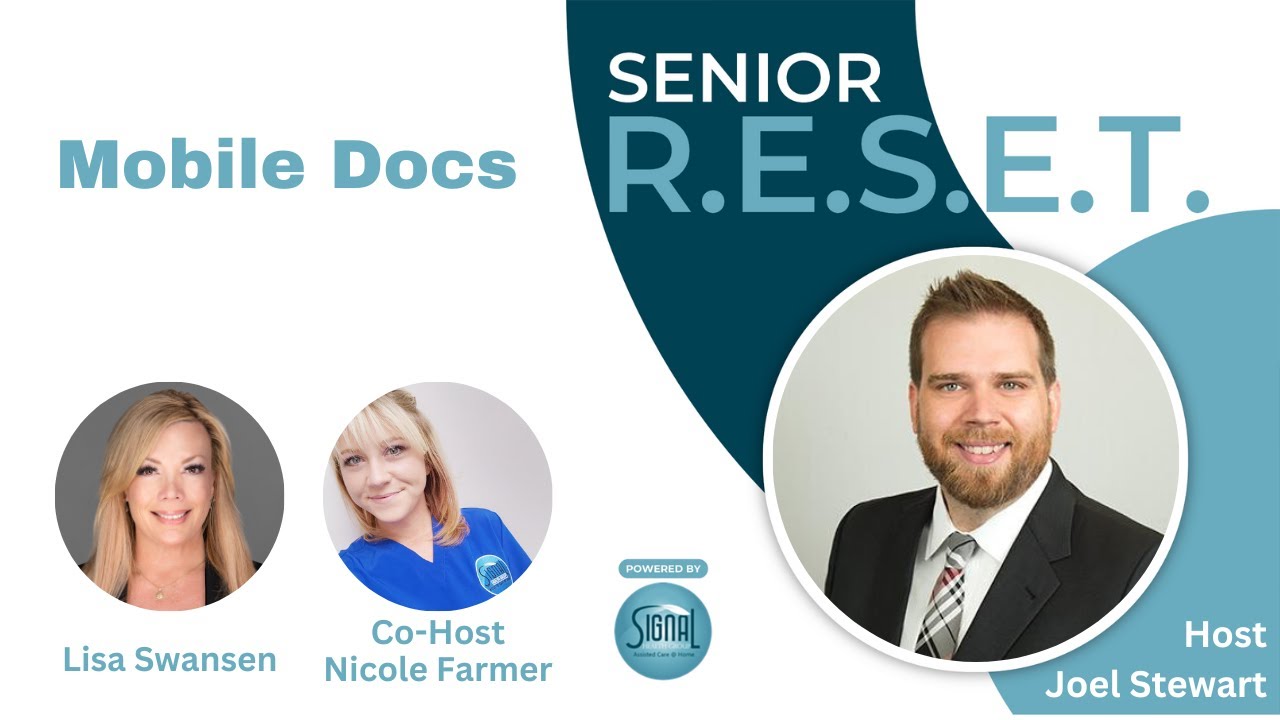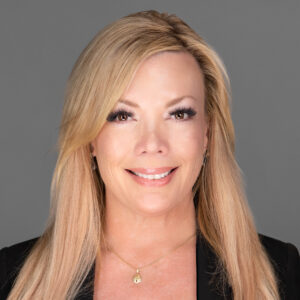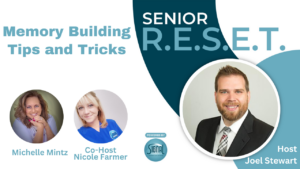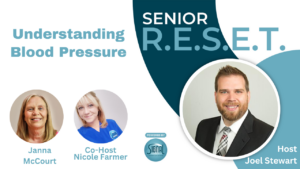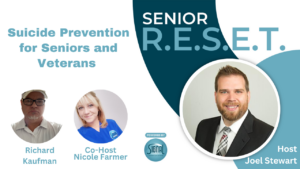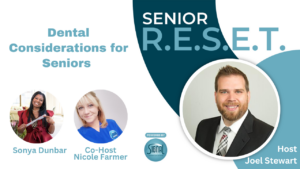Watch Here
Lisa Swansen joins us to share how Mobile One Docs, a home-based primary care healthcare group that sends nurse practitioners and physicians to patients in their home settings, can bridge the gap between traditional and mobile healthcare by sending them out to patients in their home settings, reducing barriers and increasing accessibility.
Lisa shares how they work with various plans, including traditional Medicare, Medicaid, and commercial plans, and have a fee structure similar to a physician’s office. Previously, most patients were homebound, but this has been lifted. This allows Mobile One Docs to reach different populations and reduce barriers.
Highlights:
{00:49} What is Mobile One Docs?
{03:07} How to qualify for Mobile One Docs
{07:43} Services provided through Mobile Docs
{09:52} The growing popularity of mobile doc
{12:15} What to expect at a home visit with Mobil Docs
{15:00} How home visits serve the elderly better than office visits.
{17:00} How Mobile Docs gives aid when they find a difficult home situation.
Listen Here
Lisa Swansen Bio
Lisa Swansen is a board-certified Family Nurse Practitioner. Her nursing experience started 20 years ago at UCLA’s Liver Transplant and Surgical Sub-specialties Unit. She worked at Scripps La Jolla and Tri-Cities Hospital before diversifying her career with hospice and palliative care. After her Cardiology NP Internship with Mayo School of Health Sciences Arizona, she worked in family practice. However, her dedication and interest in helping geriatric patients and their families transition through chronic diseases with community resources led her to launch MobileOneDocs, a mobile comprehensive primary care practice providing on-site care to residents in assisted living facilities.
Links:
Website: https://mobileonedocs.com
Social: https://www.linkedin.com/in/lisa-swansen-ball-fnp-30b33554
Joel
Hey everybody, this is Joel Stewart. Welcome to the Senior Reset podcast and events. We are talking about resources, education solutions, entertainment, and training for the senior community and their families.
We have a great show for you today. I’d like to again introduce myself, Joel Stewart. I have my wonderful co-host here, Nicole Farmer. And our great guest, Lisa Swanson
Lisa is the owner, founder, and practitioner with Mobile One Docs, and this is something that blew my mind when I talked with her last week. It is kind of the natural progression of in-home care and where I think the future lies, so we are excited to talk with her a little bit.
So, Lisa, if you would mind just telling us a little bit about yourself, your story, Mobile One Docs, and what Mobile One is, what do you guys do?
Lisa
Hi, Joel. Hi Nicole. Thanks for having me. I’m So, excited to be here. So, thanks for the intro. So, at Mobile One Docs, we are a home-based primary care Healthcare Group. And so, we are kind of unique in the sense that we are nontraditional.
So, we send out nurse practitioners and physicians to see the patients in their home settings. So, you know the house. The setting can be their own home, a group home, or assisted living. In essence, become their primary care provider, because with these folks, it’s very difficult for them to reach, you know, a brick-and-mortar physician’s office because, you know, it’s very taxing for them and their families.
So, we’re able to kind of bridge that gap and, you know, help them with their needs, working as a whole Community for them.
Joel
That’s incredible. So, you guys, you can act as a primary care manager because you go to facilities, you go to people’s homes, you go to where they live, and you can be a doctor for them. And this is all covered by their insurance policies.
Lisa
That’s right. So, we are contracted with several plans, including traditional Medicare and Medicaid and then commercial plans. So, it’s nice that you know our fee structure is just the same as if you were going to a physician’s office.
So, you know, we do have, you know, the copays that we do collect based upon the insurance plan, but essentially the insurance companies reimburse us. So, we’re contracted with them, which makes it nice.
Joel
So, if you have a third-party insurance company, or especially Medicare, do you have issues with Medicare Advantage plans with the third-party insurance companies, or do you handle those as well?
Lisa
We don’t. We handle those as well. We’re contracted with them as well. So, that’s not a problem.
Joel
Can you go a little bit into what the care is like if so, someone decides, you know, I want to have a doctor come to me? I don’t want to go to a doctor’s office, go through the waiting, and go through potential exposure to whoever else might be in the waiting room. Do they have to be disabled? You know what? What does your client have to be like in order to get your services?
Lisa
So, back in the day before the pandemic, of course, most of our patients were homebound, and some insurance plans stipulated that. But since then, you know that’s been lifted. So, you know that’s not a requirement for the plan.
So, it’s great that it increases our accessibility to reach different populations and reduces barriers too. So, not only do we have populations that we service in the city but also in rural communities as well, which is much needed.
You know our programs; we do have different programs, such as primary care and palliative care. Or, you know, we can go out and address palliative needs. We also work with a lot of different home health agencies. Patients are referred to us as they’re getting discharged from the hospital, so we can still work with their primary care provider so we can see them at home and make sure their needs are addressed to help reduce hospital readmission rates and provide, you know, more of the care to them in the home until they’re strong enough to go back to see their primary care provider.
And also, we have wound specialists too, or we can refer them out. So, there are so many things that we can do about that. Patient now, even if you, you know, just need assistance in the home and you’re not homebound or you need refills or, you know, we certainly can accommodate that. Not a problem.
Joel
Wow, that sounds like a lot of stuff. So, when you talk about mobile docs and taking care of people in their homes, is this just like a whole lot of telehealth, or is this something more?
Lisa
So, it’s a hybrid because, you know, we still want to be able to see the patients in their home setting because it’s important to us as providers to kind of assess their home environments, you know, to see really what’s going on, especially for elderly seniors. You know, adequate meals, or do they have somebody in the home to help them as they get weaker; you know, those are the kinds of things that we assess that, typically, in a traditional healthcare office where there is a limited duration of time, you don’t pick up on. That way, we’re able to provide more eyes and ears for them in their home.
So, with that, you know, we make it mandatory that at least we see them once a month, and then we offer the telehealth option to, you know, especially for the same day if they have any questions.
Joel
Honestly, that sounds incredible to me. I mean, I don’t. I don’t like going to the doctor. And part of that is the whole you know; I like the advice that a doctor has to say, but the whole experience of going to the doctor just makes me like the upsetting of a schedule and all that.
It kind of blows my mind that this is something, you know, and we were talking last week again, that people that have Medicare can take advantage of and that their primary care manager will cover through their insurance to come to their home once a month and check on them and, you know, see how they’re doing and make sure things aren’t getting worse. That’s just… the whole idea of it being revolutionary. To my mind. I’m a big fan of what you do.
Lisa
It’s great because, as you know, our patients become loyal to us, and we develop a bond because we do see them frequently. And you know, we like that. We call it high touch in the sense that, you know, we see them. You know, once a month, more often if there’s a medical necessity. You know, especially for caregivers or family members who have a question about their loved one, they could call connect by telehealth.
So even I, as a provider, remember that back in the day, before telehealth, we would have to see them always in the home. But then, with all the new technical advances, it’s really neat to see them engage and have the conversations via telehealth, and it, you know, makes a difference. They feel relieved to know that they can just call us anytime and connect.
Joel
And what are some of the other interesting things that you guys can do to help, you know, seniors with Medicare? You mentioned when we talked last week that you offer, you know, weight loss, diabetes care, and stuff like that. What are some of the services that you offer that people might not be thinking about?
Lisa
Yeah, especially for our diabetics. You know, there’s a percentage of them that have chronic wounds. So, we want to make sure that, you know, those are addressed and managed. And so, we have to visualize those wounds. And sometimes—you know, more often—bring in-home healthcare for the skilled nursing component. You know, address the wounds.
And also, for diabetics, as you know, we do offer the weight loss program that you know, especially with the new treatments available to help, in addition, we’re looking at the obesity epidemic too and addressing those needs by, you know, having consulted with our weight loss practitioners and helping them. Because those are big issues going on right now, and in addition, we are working with a homeless population, especially in Reno. That’s another aspect that we’re looking at.
So, we look at these issues that are happening now. You know, try to provide healthcare to the population. And so, we’re always growing and changing and making sure you know that our programs are standards of care, of course, and also that what’s important to us is our privacy too. and making sure that information is kept secure.
So, we go through specific contracts with groups to make sure that we are secure with information as well because that’s just another aspect of, you know, protecting the patient and the consumer.
Joel
In this business that you have, Mobile One Docs, in what areas are you operating?
Lisa
So currently we’re in Phoenix, Bullhead City, Kingman, AZ, Las Vegas, and Reno. And we’re looking to expand shortly to Flagstaff, Prescott, and Tucson.
Joel
And then for people out there who might be in other areas, you know there are other mobile doc companies? Is this something that is becoming a widespread option, or is this something that maybe only some people in some areas might be able to get access to?
Lisa
So as time goes on, we’re seeing more and more mobile services being offered in cities nationally. And I think it’s fantastic because, you know, it’s certainly grown over the years. Most urban cities will have a list of mobile providers that you can search the Internet for and take a look at of course, rural areas might have limited access, but you certainly know some groups do cover rural areas too. Yeah, definitely. You know, take a look to see what’s available in your community. Because more often than not, there is, you know, either a group or an individual provider that can help.
Joel
Yeah, yeah, that’s good. Services like these are going to be needed everywhere. I mean, right now, we are this. This isn’t the normal background for us; we are down in Texas, and we are assisting with the Launch of one of the signal health groups’ new franchisees down here, north of So that’s where these types of services are going to be needed all over the place as healthcare expands as the population gets older and the risks of different contagions like COVID go up. This is fantastic, what you’re doing here.
Lisa
And also, I just want to add that sometimes, you know, it takes a While to get in to see your primary care physician. So, we can again be that bridge to help out during that time, or if you have difficulty getting in quickly, you know that in certain areas of the cities, they have mobile urgent care. So, we kind of work hand in hand, as you know, with mobile. So, there is no growing need.
Joel
That brings up another question: what are these visits like? You know, sometimes when we go to a doctor’s office, we feel like we are in a manufacturing plant. It’s like you get 5 minutes here, maybe, or 5 minutes there. They get you in and out as fast as possible to see the next patient. But when you’re doing in-home visits, you have the travel time you have. You know, once you’re actually in somebody’s home, it would be kind of awkward to try to be in and out. As fast. As possible. I mean, what’s a visit like? Are they substantial, like in the time commitment, or…
Lisa
Yeah, that’s what makes us different because we do have the ability to spend time at home. So, whatever it takes, of course, insurance companies reimburse us based on the time and complexity of the visit, just as you know from being in the clinic. You know, we’re not rushed.
So, we’re in there. We have our bag. We’re able to, you know, check the vital signs. You know, we have our laptop computer, so we’re able to connect and, review medications. See if there’s anything else that they or the family might need because we can connect them to other community groups, such as home health or mobile Podiatry. Or maybe they need behavioral health, or there are so many things that can be addressed because we do have that time. You know, it could be an hour, or even sometimes. Or sometimes, for a new patient’s visit, maybe an hour and a half. When we schedule out, you know, we never give, a set time because our providers are out there driving.
So, we usually give a window because of that. And so, it’s always worked out nicely. Patients feel like they’re getting the time that they need to, address their issues because, being homebound, they typically have multiple chronic conditions, and it takes time to review each one, whether it’s, you know, congestive heart failure or something else. Might have lung disease. A lot is going on, so we want to be able to spend that time.
Nicole
Now when you’re at home, you guys take a holistic approach to it too. You’re not just looking at their medical needs; you’re assessing their home situation Maybe their economic standards, like kind of where they are, and getting them other services in addition to you too, right?
Lisa
Right, exactly. So, we assess the need, if they might need in-home physical therapy for gait. Strengthening, especially for an elder who might be at risk for falls. So, we assess that and make the appropriate recommendation, or we might make a recommendation for social services, to connect for, like Meals on Wheels, or to have family conversations too because perhaps there are cognitive changes with their loved one, you know, memory loss.
So, we can start the initial workup for leading for dementia and help guide them down that journey and that pathway So there are so many things that, you know, we can try to capture holistically for that patient in the home setting.
Joel
What are some of the things that you discover when you’re going into a home scenario that you would never discover with them coming into the office?
Lisa
So, I like their living space, whether or not they have a caregiver. So, sometimes we walk in, and we’ll see, maybe an elderly person who’s been living alone with, you know, no family. I need no additional help, and we might encounter a hoarding situation right where it puts them at risk. You know, their living situations.
So, we’ll address, you know, those needs, of course, and work together as a Team to help out. You know, we’ve also worked with things like state guardianship. Representatives, too, to kind of all work together. As a team, we work with placement coordinators in the community, you know how to help them transition from home to a facility, so there are lots of different things to do. That we see in the home.
Joel
What do you do when you find a hoarder? It’s an unhealthy situation, but that’s a hard conversation to have. I’ve talked with a few people in the field.
Lisa
And especially. And we see pets too, right? We want to make sure that the pets are taken care of as well. So yeah, definitely working with social services, trying to find placement if needed, or behavioral health. It’s never easy. I have to say there’s no easy way. I know the answer to all of that. It’s just, you know, steadily working together towards a goal.
Joel
What are some of the things that you’ve run into? You know, when you’re going to somebody’s home, it’s a more intimate setting than a clinical doctor’s office. What are some of the things—and I guess the follow-up—that would make it more conducive to having some of those harder conversations? What are some of the hard conversations that you’ve had with clients that you know? You show up at the house, and you’re just like, wow, this needs to be addressed. You know, there’s something going on.
Lisa
Yeah, absolutely. I mean, I can just kind of reflect on my past too, especially dealing with wounds in the heat of the summer. And you know, sometimes the screens are open, and things can get into the wounds. Right. So, we see all sorts of things again. So, we want to manage that appropriately.
Other things that we see, apart from hoarding or wandering, are big, especially if families notice that their spouse is starting to have behavioral changes and wandering, so we’ll start looking into that and, you know, identifying the causes and making the appropriate recommendations appointment.
Yeah, so. It’s, you know, always very interesting; there’s never a dull moment in the space. Families are grateful. It’s nice to see that, you know, we can try to kind of work together because, as I always say, it takes a village to work with the family. And the hardest conversations too. I mean, getting back to that is, you know, when you know, the patients are getting to the point where they don’t want aggressive treatment. Treatments they don’t want to go to the hospital anymore.
And so, we have those hard conversations. What are your goals for care? Code status in terms of do you want to be resuscitated or not? So those are some difficult conversations to have and to provide options to the patient, and you know, having them kind of decide and having a shared decision process with them so sometimes we do have to make the referral, you know, to Hospice services, and it’s rewarding in the sense that the families can come together and say, Well, you know, thanks for starting that conversation or helping us out on that journey.
Joel
You mentioned that wounds are one of the things, especially during the summer, that people need to take care of. I know that. My grandpa used to have vasovagal issues in his legs, and he always had, you know, nasty open wounds. If somebody is in one of those situations, what’s kind of a red flag when it comes to a wound that says, you know, this needs to be taken care of now, this isn’t normal.
Lisa
You know, we see nasty infections in the home because they haven’t been addressed. If there are new patients to us and they haven’t seen a physician or gone to the doctor’s office in years, we have to kind of take action.
So that’s when you know we come up with a treatment plan; you know, get help like home health. Refer them out. Either way, you know if they’re able to wound clinic, there are a lot of different pathways to help, you know, treat that wound. And we can also get equipment into the home. So, if we need to get a wheelchair, power wheelchair, or hospital bed, you know, we can go ahead and place those orders and have wound care supplies delivered to the home.
So, it’s all you know based on what the patient needs, and their goals are, and certainly if it warrants, you know, emergent care, we’ll send them if they need the ER right away; of course, we’ll send them, but we can refer them out to specialty groups, vascular groups, there’s a lot. That can be done.
Nicole
Your work is great. I think it’s very needed in our area, in all areas, For sure.
Joel
It’s a whole paradigm shift for me, I guess, to try to wrap a little bow around all of this. It sounds like, in a lot of areas, the number of areas is growing by the day. If you are a senior and you have trouble getting to your doctor, honestly, it sounds like that just doesn’t work. Or someone that’s kind of done with those trips to the doctor that you can make if you’re on Medicare, you can reach out. Get a mobile dock set up. And in your case, I mean, they come out once a month just to check on you, make sure you’re OK, check on any ongoing issues you have that are covered by Medicare, and possibly even with some of the Medicare Advantage plans, they have some extra gatekeepers involved. But depending on your area, you might be able to do this there as well.
I think that this opens up… It takes away barriers to care that a lot of seniors, especially ones that have a lot of pain dealing with fibromyalgia or chronic fatigue, have a lot of physical barriers to getting to the doctor. This takes down that barrier, and honestly, taking this route sooner rather than later can have problems in your life addressed sooner rather than later because you’re not Anytime we look at change, it’s when the pain of the change you know is less than the pain that you’re currently experiencing.
So, for someone who has a lot of hurdles to get to the doctor, the pain of change can, you know, be a lot. And so, they might let things go. Really shouldn’t and it sounds good to me—I mean, I’m only in my 40s, and I would probably rather sign up with you guys If I could.
What’s a good way for people to contact you if they need If they’re in one of your areas that you listed earlier and they want to reach out, what’s a good way to reach you?
Lisa
You can certainly call us at our main number, which is 888-709-8721. Or you could go to our website, which is MobileOneDocs.com, all spelled out in one word, and you can e-mail us at info@mobileonedocs.com, and we will get back to you right away.
But I do want to add that if you do have traditional Medicare, you can still have your primary care. Doctor, provider, and still call us; you don’t need a referral, so we can help out too. If you’re in an area that might be rural, you might want to contact your physician’s office, because sometimes they might have somebody in the office that’s able to do home visits. You know, we see that too, so definitely.
Nicole
So, you can go to your primary care doctor, and you don’t have to get them up but say you have an urgent issue like a wound that’s gotten worse or something new that’s come on new on set, and you can’t get to your doctor. You guys can see them in the interim and then just transfer that information over to their primary care.
Lisa
Yeah, that’s right. We can do that. And then I also want to add that, especially in urban areas, there are a lot of mobile lab groups and mobile diagnostic groups. So, say, for example, that you are elderly. Can the families concerned about pneumonia We can order mobile X-rays right away within the same day, get results, and, you know, send them? Treatment at the pharmacy, that sort of thing. So that’s kind of, you know, the speed that we work at. Do you know how we can kind of coordinate care for everybody?
Nicole
How long ago did you start using Mobile One Doc? How long have you been doing that?
Lisa
Since 2016, I’ve been involved in home-based primary care for about 12 years now.
Nicole
I think what you’re doing is amazing, but I would like to point out that even though you started this in 2016 and you’ve grown from there, you still see your patients too, right? You still have a handful of people that you can’t let go of.
Lisa
Yeah, I do. It’s a handful. Earlier this week, I covered telehealth, so I missed that. It’s important to connect, and I still miss that connection a lot, especially as a provider.
Joel
All right. Well, thanks for coming on with us and sharing this kind of news with me. Anyway, the services of mobile doctors and a bit about your business, mobile doctors, Thanks for sharing with us today.
Lisa
I appreciate it. Thanks for having me. Have a great day. Thank you.
Nicole
Thanks so much, Lisa.
Lisa
Bye bye.

